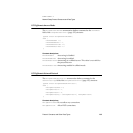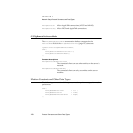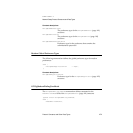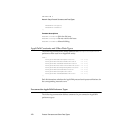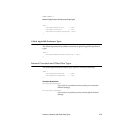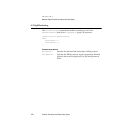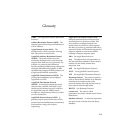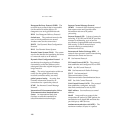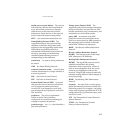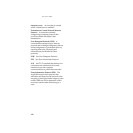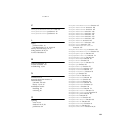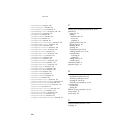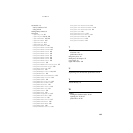
GLOSSARY
177
media access control address The six-byte
data link layer address that is required for
every device that connects to a network.
Other devices in the network use MAC
addresses to locate devices on the network
and to create and update routing tables.
MTU See maximum transmission unit.
Name Binding Protocol (NBP) The
AppleTalk transport-layer protocol that
translates a character string name to the
address of the corresponding socket client;
NBP enables AppleTalk protocols to
understand user-defined zones and device
names by providing and maintaining
translation tables that map names to
corresponding socket addresses.
named area An area in which preferences
are stored.
NBP See Name Binding Protocol.
network connection entity An entity that
contains information for a single instance of
a network protocol.
PAP See Printer Access Protocol.
PPP See Point-to-Point Protocol.
Point-to-Point Protocol (PPP) A protocol
that provides host-to-network connections
over synchronous and asynchronous
circuits. PPP was designed to work with
several network-layer protocols, such as IP,
IPX, and ARA.
preference The unit of organization
within an entity. Each preference
corresponds to a structure containing the
settings for a particular protocol.
preference type An OSType that identifies a
particular preference.
Printer Access Protocol (PAP) The
AppleTalk protocol that manages interaction
between computers and print servers; PAP
handles connection setup, maintenance, and
termination, as well as data transfer.
proxy ARP A variation of the ARP
protocol in which an intermediate device
(such as a router) sends an ARP response to
the requesting host on behalf of the node
whose MAC address was requested.
RARP See Reverse Address Resolution
Protocol.
Reverse Address Resolution Protocol
(RARP) The Internet protocol that maps
MAC addresses to IP addresses.
Routing Table Maintenance Protocol
(RTMP) The AppleTalk protocol used to
establish and maintain the routing
information that is required by routers in
order to route datagrams from any source
socket to any destination socket on the
network. Using RTMP, routers dynamically
maintain routing tables to reflect changes in
network topology.
RTMP See Routing Table Maintenance
Protocol.
set entity An entity that is used to group
global and network connection entities for a
particular purpose. For example, a set entity
can be used to group AppleTalk and TCP/IP
configurations for a particular location, such
as home or work.
TCP See Transmission Control Protocol/
Internet Protocol.
TCP/IP See Transmission Control
Protocol/Internet Protocol.



